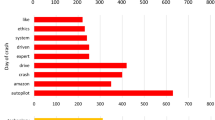Abstract
In recent times, African nations have been mostly absent in discussions concerning artificial intelligence (AI)-powered driverless cars. Additionally, it was also discovered that several global surveys and other studies on driverless car acceptance, popularity and confidence excluded Africa. This is in the light of its immense benefits which include the reduction of road accidents, an effectual car-sharing and transport structure and accurate navigation with less consideration of distractions. Therefore, we examined the challenges and risks attendant to the deployment of self-driving cars in a developing region such as Africa. Several challenges were identified, and they include lack of needed infrastructure, absence of law and order, cost, absence of image detection and recognition projects, absence of practical artificial intelligence courseware, need for an advanced AI-based algorithm, weak legal framework and other ethical issues, criminalization, security and privacy and high tendency to cause more unemployment. The paper highlights several risks attendant to such forms of advancement in Africa.
Access this chapter
Tax calculation will be finalised at checkout
Purchases are for personal use only
Similar content being viewed by others
References
Stilgoe J (2018) Machine learning, social learning and the governance of self-driving cars. Soc Stud Sci 48(1):25–56. https://doi.org/10.1177/0306312717741687
Bin Sulaiman R (2018) AI-based autonomous cars. SSRN Electron J. https://doi.org/10.2139/ssrn.3167638
Bimbraw K (2015) Autonomous cars: past, present and future—a review of the developments in the last century, the present scenario and the expected future of autonomous vehicle technology. In: 12th International conference on informatics in control, automation and robotics, pp 191–198. https://doi.org/10.5220/0005540501910198
Kaur K, Rampersad G (2018) Trust in driverless cars: investigating key factors influencing the adoption of driverless cars. J Eng Tech Manage. https://doi.org/10.1016/j.jengtecman.2018.04.006
Schoettle B, Sivak M (2014) A survey of public opinion about autonomous and self-driving vehicles in the U.S., the U.K., and Australia. In: The university of michigan, transportation research institute, Ann Arbor, U.S.A. Report No. UMTRI-2014–21, July 2014
Cisco Systems (2013) Cisco customer experience research automotive industry: global data. https://www.cisco.com/web/about/ac79/docs/ccer_report_manufacturing.pdf.
Kyriakidis M, Happee R, de Winter JC (2015) Public opinion on automated driving: results of an international questionnaire among 5000 respondents. Transport. Res Part F: Traffic Psychol Behav 32:127–140. https://doi.org/10.1016/j.trf.2015.04.014
Bansal P, Kockelman KM, Singh A (2016) Assessing public opinions of and interest in new vehicle technologies: an Austin perspective. Transport Res Part C: Emerg Technol 67:1–14
Xu Z, Zhang K, Min H, Wang Z, Zhao X, Liu P (2018) What drives people to accept automated vehicles? Findings from a field experiment. Transport Res Part C: Emerging Technol 95:320–334. https://doi.org/10.1016/j.trc.2018.07.024
Shabanpour R, Golshani N, Shamshiripour A, Mohammadian (Kouros) A (2018) Eliciting preferences for adoption of fully automated vehicles using best-worst analysis. Transport Res Part C: Emerging Technol 93:463–478
Nordhoff S, de Winter J, Payre W, van Arem B, Happee R (2019) What impressions do users have after a ride in an automated shuttle? An interview study. Transport Res F: Traffic Psychol Behav 63:252–269
Navya (2021) Self-driving shuttle for passenger transportation. https://navya.tech/en/solutions/moving-people/self-driving-shuttle-for-passenger-transportation/
Stricker K, Wendt T, Stark W, Gottfredson M, Tsang R, Schallehn M (2020) Electric and autonomous vehicles: the future is now bain and company Oct 29, 2020
Ngezahayo E, Burrow M, Ghataora, G (2020) Rural roads—roles, challenges and solutions for Sub-Saharan Africa’s sustainable development. Int J Latest Eng and Manag Res 4(10):70–79
WHO (2020) Road safety, WHO | regional office for Africa. www.afro.who.int/health-topics/road-safety (Accessed 3 Feb 2021)
Global alliance for NGOs for road safety, Africa Chapter. https://roadsafetyngos.org/africa-chapter (Accessed 3 Feb 2021)
UNECA (2019), Africa poised to accelerate road safety action through the African road safety observatory. www.uneca.org/stories/africa-poised-accelerate-road-safety-action-through-african-road-safety-observatory (Accessed 3 Feb 2021)
Zongo P (2017) Why self-driving cars on African roads may remain a fairy-tale. Pulse. https://www.linkedin.com/pulse/why-self-driving-cars-african-roads-may-remain-fairy-tale-zongo
Mangena A (2018) Roads without drivers. Forbes Africa. https://www.forbesafrica.com/focus/2018/03/22/roads-without-drivers/
Godoy J, Pérez J, Onieva E, Villagra J, Milanés V, Haber R (2015) A driverless vehicle demonstration on motorways and in urban environments. Transport 30(3):253–263
African Development Bank Group (2013) Road safety in africa assessment of progresses and challenges in road safety management system. Department of transport and ICT, OITC.https://www.afdb.org/fileadmin/uploads/afdb/Documents/Events/ATFforum/Road_Safety_in_Africa_-_Assesement_of_Progresses_and_Challenges_in_Road_Safety_-_AfDB.pdf
Patel N (2018) Understanding poverty in Africa. Brookings: Africa in focus. https://www.brookings.edu/blog/africa-in-focus/2018/11/21/figure-of-the-week-understanding-poverty-in-africa/
Lee D (2018) Why big tech pays poor Kenyans to teach self-driving cars. BBC News. https://www.bbc.com/news/technology-46055595.
Polyakov A (2019) Five components of autonomous car security. Forbes. https://www.forbes.com/sites/forbes-personal-shopper/2021/02/05/best-valentines-candy-valentines-chocolate-and-baked-goods/?sh=7e6a04b222b3 Accessed 3 Feb 2021
Data Science Nigeria (2021) Artificial intelligence bootcamp. https://www.datasciencenigeria.org/2020-bootcamp/
Ionita S (2017) Autonomous vehicles: from paradigms to technology.In: IOP Conference Series: Materials Science Engineering vol 252. https://doi.org/10.1088/1757-899X/252/1/012098.
Kasimbu J (2013) Law enforcement and legal framework (East African Region).
BusinessTech (2019) South Africa has plans for self-driving cars—but the law needs to change first. https://businesstech.co.za/news/motoring/309052/south-africa-has-plans-for-self-driving-cars-but-the-law-needs-to-change-first/
Edwards S (2017) Developed countries ‘exporting pollution’ by trading second-hand vehicles to poorer countries, experts say. Inside development, urban sustainability. https://www.devex.com/news/developed-countries-exporting-pollution-by-trading-second-hand-vehicles-to-poorer-countries-experts-say-89457
AfricaCheck (2019) Factsheet: south Africa’s crime statistics for 2018/19
Institute for Economics and Peace. Global Terrorism Index (2020) Measuring the impact of terrorism, Sydney. Available from: http://visionofhumanity.org/reports (Accessed 4 Feb 2021)
Bradshaw T (2017) Self-driving cars prove to be labour-intensive for humans. Financial Times. https://www.ft.com/content/36933cfc-620c-11e7-91a7-502f7ee26895
Author information
Authors and Affiliations
Editor information
Editors and Affiliations
Rights and permissions
Copyright information
© 2022 The Author(s), under exclusive license to Springer Nature Singapore Pte Ltd.
About this paper
Cite this paper
Nwokoye, C.H., Okeke, V.O.S., Roseline, P., Okoronkwo, E. (2022). The Mythical or Realistic Implementation of AI-powered Driverless Cars in Africa: A Review of Challenges and Risks. In: Zhang, YD., Senjyu, T., So-In, C., Joshi, A. (eds) Smart Trends in Computing and Communications. Lecture Notes in Networks and Systems, vol 286. Springer, Singapore. https://doi.org/10.1007/978-981-16-4016-2_65
Download citation
DOI: https://doi.org/10.1007/978-981-16-4016-2_65
Published:
Publisher Name: Springer, Singapore
Print ISBN: 978-981-16-4015-5
Online ISBN: 978-981-16-4016-2
eBook Packages: Intelligent Technologies and RoboticsIntelligent Technologies and Robotics (R0)




